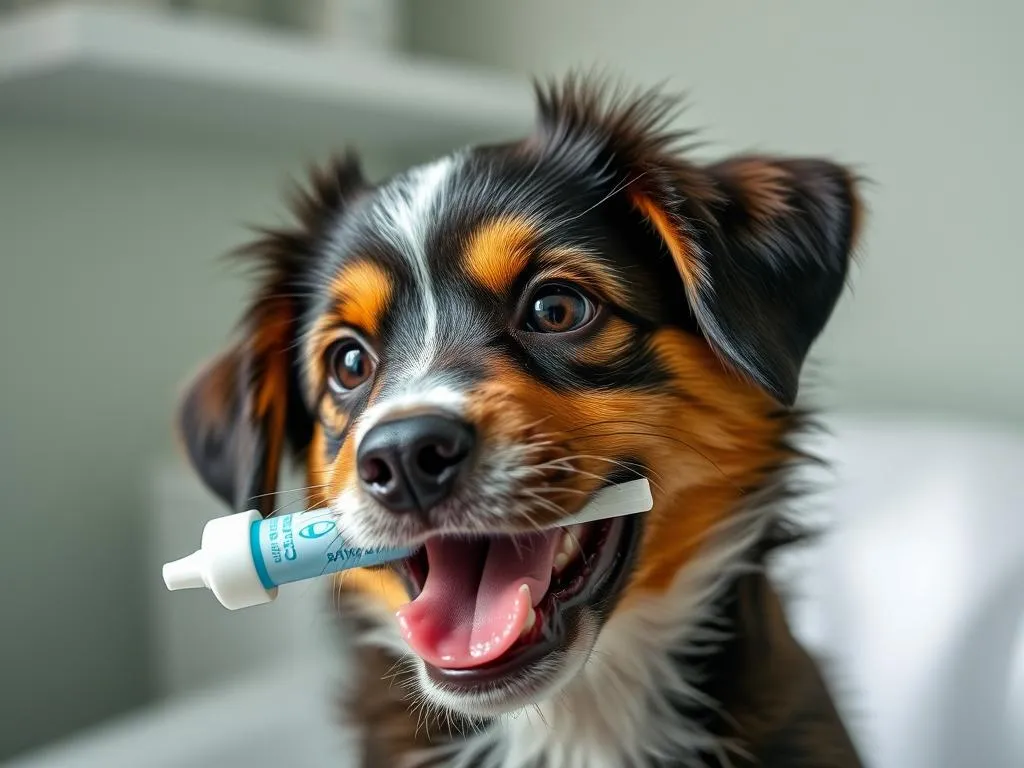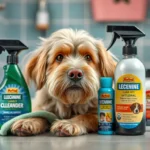
Introduction
Maintaining the health of our furry friends is a vital responsibility for dog owners. According to recent statistics, nearly 80% of dogs show signs of dental disease by the age of three. This alarming figure underscores the necessity of proactive health care, which includes regular veterinary visits, proper nutrition, and diligent dental hygiene.
Dental health in dogs is often overlooked, yet it plays a critical role in their overall well-being. Poor dental hygiene can lead to serious health issues, including heart, liver, and kidney problems. It is essential to start your puppy on a dental care routine early, which includes the use of best puppy toothpastes specifically formulated for their needs.
Understanding Canine Dental Health
Importance of Dental Hygiene for Dogs
Just like humans, dogs require regular dental care to maintain healthy teeth and gums. Neglecting this aspect of their health can lead to various dental diseases, including:
- Gingivitis: Inflammation of the gums, often the first sign of dental issues.
- Periodontal Disease: A severe form of gum disease that can lead to tooth loss and other health complications.
By ensuring your puppy has good dental hygiene, you can prevent these issues and promote a longer, healthier life.
Signs of Dental Problems in Puppies
Recognizing the signs of dental problems early can save your puppy from discomfort and more serious health issues. Keep an eye out for:
- Bad breath (halitosis): While some doggie breath is normal, persistent foul odors can indicate dental disease.
- Difficulty eating or chewing: If your puppy seems reluctant to eat or is dropping food, it may be due to dental pain.
- Excessive drooling or pawing at the mouth: These behaviors can signal discomfort or irritation in the mouth.
Choosing the Right Toothpaste for Puppies
What to Look for in Puppy Toothpastes
When selecting a toothpaste for your puppy, certain factors are crucial to ensure safety and effectiveness. Here’s what to consider:
- Ingredients to avoid: Steer clear of toothpastes containing xylitol or fluoride, as these can be harmful to dogs.
- Natural and vet-approved ingredients: Look for products with natural ingredients that are safe for ingestion and endorsed by veterinarians.
- Texture and flavor preferences: Puppies may prefer certain textures or flavors, so it’s worth experimenting to find one they enjoy.
Top Features of the Best Puppy Toothpastes
The best puppy toothpastes come with specific features that enhance their effectiveness:
- Enzymatic action for plaque control: Toothpastes that contain enzymes can help break down plaque, making it easier to remove.
- Non-foaming formula for easy use: Non-foaming toothpastes are easier for puppies to tolerate and can be safely swallowed.
- Safety for ingestion: Since puppies may swallow toothpaste, ensure it is made with safe, digestible ingredients.
Review of the Best Puppy Toothpastes
Top 5 Puppy Toothpastes
Product 1: Vet’s Best Enzymatic Dog Toothpaste
- Key features: Contains natural ingredients like aloe and neem oil, designed to combat plaque and tartar.
- Pros: Effective plaque control, pleasant taste, and vet-approved.
- Cons: Some puppies may not like the flavor.
- Price range: $6 – $10.
Product 2: Nylabone Advanced Oral Care Puppy Toothpaste
- Key features: Formulated with Denta-C, which is scientifically formulated to reduce plaque.
- Pros: Non-foaming, easy to use, and highly palatable.
- Cons: May not be as effective on heavy tartar buildup.
- Price range: $5 – $8.
Product 3: PetSmile Professional Dog Toothpaste
- Key features: Recommended by veterinarians, this toothpaste helps to prevent plaque buildup.
- Pros: No foaming agents, safe for ingestion, and made with safe ingredients.
- Cons: Higher price point.
- Price range: $15 – $20.
Product 4: TropiClean Fresh Breath Clean Teeth Gel
- Key features: No brushing required; just apply the gel for instant results.
- Pros: Very easy to use, great for puppies that resist brushing.
- Cons: Requires consistent use to see results.
- Price range: $10 – $15.
Product 5: Veterinary Oral Health Council (VOHC) Approved Toothpaste
- Key features: Contains natural ingredients and is approved by the VOHC for its effectiveness.
- Pros: Widely recommended by vets, great flavor.
- Cons: Limited availability in some stores.
- Price range: $12 – $18.
Comparison Table of Best Puppy Toothpastes
| Product Name | Key Features | Price Range | Pros | Cons |
|---|---|---|---|---|
| Vet’s Best Enzymatic Dog Toothpaste | Natural ingredients, enzymatic action | $6 – $10 | Effective, vet-approved | Some taste aversion |
| Nylabone Advanced Oral Care Puppy Toothpaste | Denta-C formula, non-foaming | $5 – $8 | Palatable, easy to use | Less effective on heavy tartar |
| PetSmile Professional Dog Toothpaste | Recommended by vets, safe ingredients | $15 – $20 | No foaming agent | Higher price |
| TropiClean Fresh Breath Clean Teeth Gel | No brushing required | $10 – $15 | Very easy to use | Needs consistent use |
| VOHC Approved Toothpaste | Natural ingredients, VOHC approved | $12 – $18 | Vet recommended | Limited availability |
How to Brush Your Puppy’s Teeth
Preparing for the Tooth Brushing Routine
Before you start brushing your puppy’s teeth, it’s essential to prepare both yourself and your puppy:
- Choosing the right tools: Use a soft-bristled toothbrush designed for dogs and a best puppy toothpaste that is safe for ingestion.
- Creating a comfortable environment: Select a quiet, comfortable space where your puppy feels at ease. You may want to sit on the floor and let your puppy sniff the toothbrush and toothpaste to familiarize them.
Step-by-Step Guide to Brushing
-
Introducing the toothbrush: Start by gently rubbing the toothbrush against your puppy’s teeth without toothpaste to allow them to get used to the sensation.
-
Applying toothpaste: Once your puppy is comfortable with the toothbrush, apply a small amount of best puppy toothpaste onto the bristles.
-
Brushing technique and duration: Use gentle circular motions while focusing on the outer surfaces of the teeth. Aim for about 30 seconds to a minute, gradually increasing the time as your puppy becomes more accustomed to the process.
-
Follow-up care and rewards: After brushing, offer praise and a small treat to create a positive association with dental care.
Additional Dental Care Tips for Puppies
Alternatives to Toothpaste
If your puppy is resistant to brushing, there are several alternatives to consider:
- Dental chews and treats: Many products are designed to help clean teeth while satisfying your puppy’s chewing instinct.
- Water additives for oral health: These can be added to your puppy’s water to promote fresh breath and reduce plaque buildup.
Regular Veterinary Check-Ups
Regular veterinary check-ups are crucial for maintaining your puppy’s dental health. Professional cleanings can help address tartar buildup and ensure that your puppy’s teeth and gums remain healthy. Additionally, be aware of signs that require immediate veterinary attention, such as severe bad breath, bleeding gums, or noticeable tooth loss.
Common Misconceptions about Dog Dental Care
Myth: Dogs don’t need dental care
Many pet owners mistakenly believe that dogs don’t require dental care. In reality, neglecting dental hygiene can lead to serious diseases and complications, not only affecting the mouth but potentially impacting other organs as well.
Myth: Human toothpaste is safe for dogs
This is a dangerous misconception. Human toothpaste often contains xylitol and fluoride, both of which are toxic to dogs. Always use best puppy toothpastes specifically formulated for canine use.
Conclusion
Dental health is an essential component of your puppy’s overall well-being. By prioritizing dental care from an early age and using the best puppy toothpastes, you can help ensure your furry friend enjoys a healthy, happy life. Regular brushing, combined with dental treats and professional check-ups, will go a long way in preventing dental diseases and keeping your puppy’s smile bright.
Encouraging a routine that includes dental care is not just about preventing bad breath; it’s about nurturing a lifelong commitment to your dog’s health.









